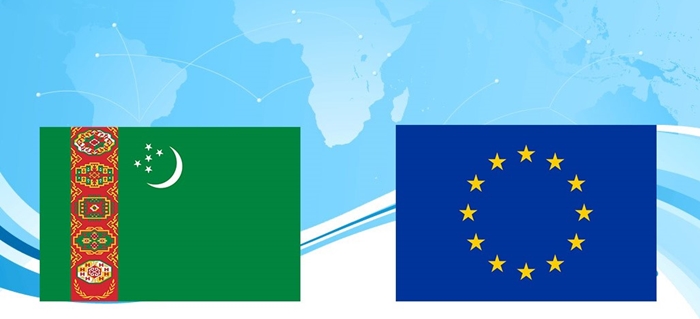On 27-28 November, in Ashgabat, Turkmenistan, an International Conference “Enhancing Substance Use Prevention, Supply Reduction, and Developing National Expertise in Addictology and Treatment in Central Asia” has been conducted with the support of EU-funded Central Asia Drug Action Programme (CADAP). The event gathered delegations from all 5 Central Asian countries (Kazakhstan, Kyrgyzstan, Tajikistan, Turkmenistan, Uzbekistan) among representatives of relevant state institutions, NGOs and EU expert organizations. Aim of the conference was to share expertise and knowledge among professionals in supply reduction and the prevention and treatment of psychoactive substance use to implement and sustain effective, evidence-based interventions and policies that will contribute to the reduction of substance use, including NPS, and its consequences and associated risks.
During the conference an overview of international best practices in preventing psychoactive substance use and drug treatment services was made; key stakeholders and subject experts in combating illicit drugs, including NPS brought together; supply reduction measures in Central Asia reviewed; strategies and interventions for preventing substance use in Central Asia were jointly discussed.
While welcoming the participants and guests of the conference, representative of Ministry of Interior of Turkmenistan underlined that as a result of joint efforts of law enforcement agencies, ministries and public organizations aimed at preventing illegal drug use, as well as strengthening the state border with neighboring countries, illegal drug trafficking has been minimized. In Turkmenistan, much attention is paid to activating the work of health care, education, and mass media to form a negative attitude among the country’s population towards drug use.
According to the Prosecutor General’s Office and the Ministry of Interior of the Republic of Kazakhstan, the issue of control over precursors is particularly complex, given the need for high-quality reagents to identify precursors among the huge flow of chemicals used in the economy and for production processes.
Ministry of Interior of the Kyrgyz Republic expressed concern in increasing popularity of various smoking mixtures in recent years, effect of which is associated with the presence of synthetic drugs (cannabinoids). In 3 years and 10 months, 260 kg of synthetic drugs were confiscated.
Drug Control Agency of Tajikistan informed that in 2024 16 criminal groups consisting of 74 people were liquidated, and 1,300 kg of narcotics were confiscated. Criminal groups are becoming increasingly inventive – they they use high-quality vacuum packaging, not recognizeble by sniffer dogs.
European expert organizations such as the National Center for the Prevention of Addiction (Poland), Akzept (Germany), the Republican Center for the Treatment of Addiction (Lithuania), technical specialists from penitentiary institutions in Spain made expert presentations.
Thus, conference created a live platform to share knowledge and successful models among international and regional experts about the current drug use situations, to identify collaborative strategies and initiatives.
As a result of the international conference, draft recommendations will be developed to strengthen national drug policies that are evidence-based, gender-responsive, coherent and balanced. ///nCa, 29 November 2024 (in cooperation with EU CADAP)
